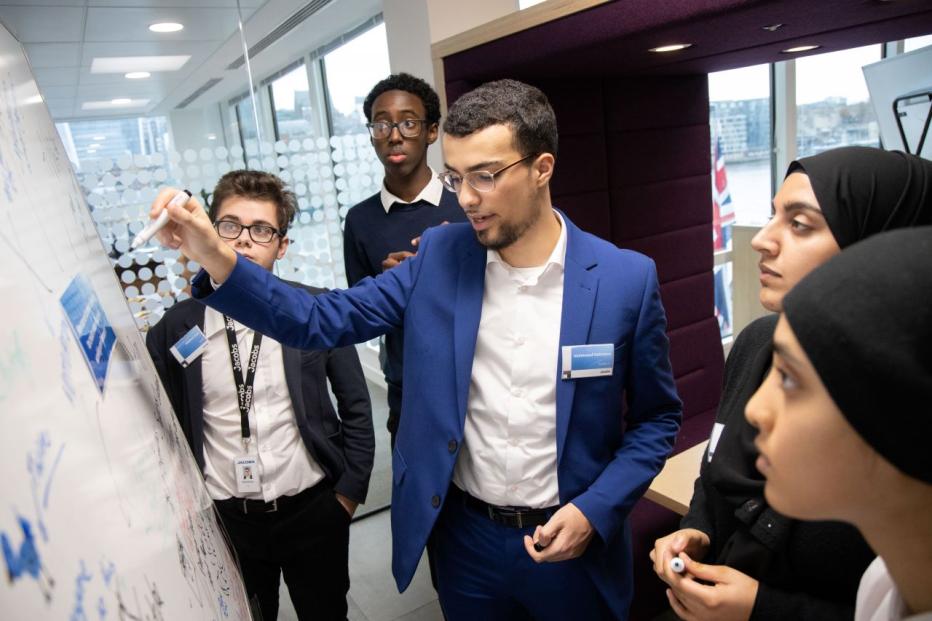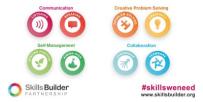
Imagine the opportunity when the skills taught at school are clearly translatable to the world of work. When talent can move more easily, as those skills translate to other roles, employers or sectors. When the language of work places greater focus on future proofing people’s skills.
Jacobs is supporting the launch in the U.K. of the Skills Builder Universal Framework, which describes the skills we need to succeed in education, work and life. The Framework, developed by the Essential Skills Taskforce, is a clear, measurable and authoritative framework for essential skills that sets out how they can be identified in practice. It provides a common language that can be easily understood and adopted from the classroom to the boardroom, helping individuals and businesses to better respond to challenges, adapt to new working situations and innovate for success.
Essential skills are highly transferable skills like problem solving, creativity, staying positive, aiming high and teamwork. They can, and should, be developed throughout our lives and cannot be automated out. They are the foundation for developing new technical and job-specific skills, including digital skills.
It can be challenging enough to enter the world of work, particularly for the most disadvantaged in our communities. Add to this the changing nature of education and work in recent weeks, and these essential skills are now more important than ever as employers and educators look to reshape and adapt, addressing the challenges at hand and preparing for the future.

“As the world of work becomes seemingly more complex, as new roles are created with new terminology to follow, it is essential that we distil our needs back to clear requirements such as those in the Skills Builder Framework, particularly at the entry level,” said Jacobs People and Places Solutions Europe, Middle East & Africa Senior Vice President and General Manager Donald Morrison. “This allows us to attract a diverse and broad spectrum of talent. Ironically, as work complexity increases, the skills of the future are more likely to be ‘softer’. The behaviors and attitudes that act as a foundation, allowing our people to be successful, are closely linked to The Skills Builder Framework.”
Hundreds of schools in the U.K. are already using the framework and it is now being adopted by trailblazing employers including Heathrow, Tideway and Boots alongside Jacobs.
“As members of Business in the Community and part of the Employment and Skills Leadership team, we have embraced the framework in the U.K. as a way to drive consistency in the language of skills in employment,” explained Jacobs Talent Director Sam Hannis.
“We are already working with our external partner Enthuse Partnership on embedding the framework in our STEM work in three of our key cities: Glasgow, Bristol and Manchester, and are looking at how we can use the Skills Builder in our Apprentice recruitment and development.”
Sam added: “At the same time as the world realizes that the future skills required to be successful will be the behaviors that cannot be automated, the Skills Builder puts these behaviors at the forefront of the focus on future proofing people’s skills.”
Access the framework here, get business support and resources at www.bitc.org.uk/essential-skills and join the campaign with the hashtag #skillsweneed on Twitter and LinkedIn.














































